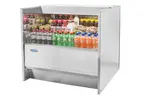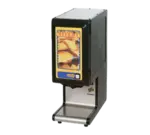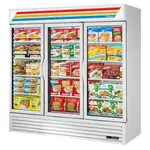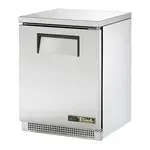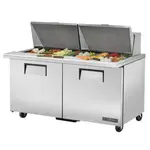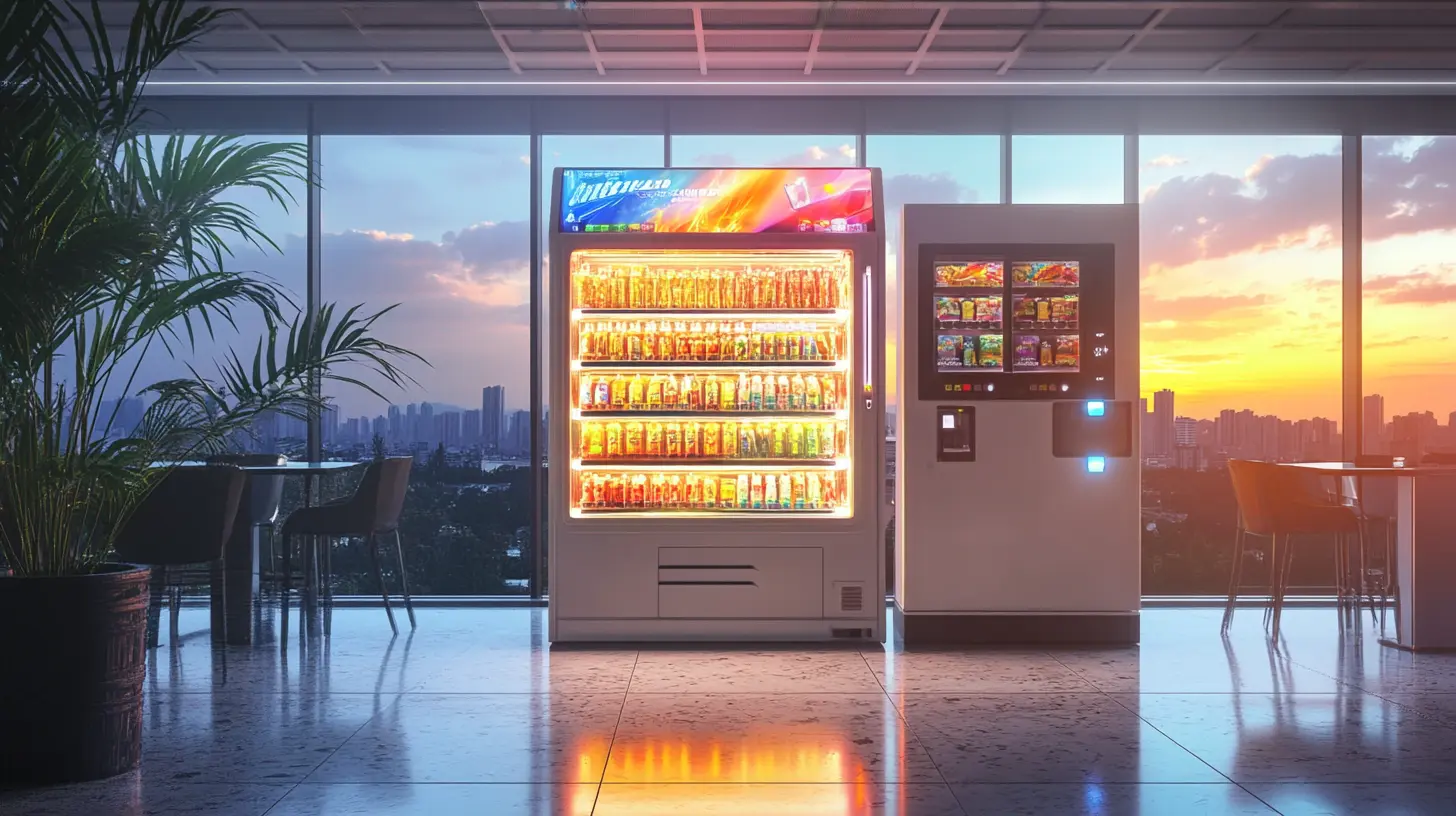
Starting a Vending Machine Business: A Comprehensive Guide
The vending machine industry presents an exciting opportunity for entrepreneurs looking to generate passive income. With minimal overhead and the potential for 24/7 sales, vending machines can be a lucrative investment. From traditional snack and beverage dispensers to more specialized options like healthy food vending and ice vending, the market is full of possibilities. This guide will walk you through the steps of starting a vending machine business and highlight how commercial kitchen equipment can support your operation and enhance its efficiency.
Why Start a Vending Machine Business?
The vending machine industry is a billion-dollar sector, and the potential for growth continues to rise. Whether you are looking to provide quick snacks, healthy options, or even ice, vending machines offer the convenience customers seek. With the right products, location, and machine type, the business can generate a steady flow of revenue.
For entrepreneurs entering this market, having the right support is essential—especially when offering fresh food or beverages. High-quality commercial kitchen equipment plays a key role in keeping products fresh, safe, and appealing to customers.
How to Start a Vending Machine Business
Step 1: Conduct Market Research
Before investing in vending machines, understanding the market is crucial. Research your target audience and the types of products they are most likely to purchase. Consider factors such as location, customer preferences, and competition.
Prime locations for vending machines include high-traffic areas like office buildings, gyms, schools, and hospitals. By targeting these spots, you can increase the chances of your machines generating consistent sales.
As you expand into fresh food offerings, such as salads or sandwiches, or even ice vending machines, it's important to have the right commercial kitchen equipment to maintain product quality. Refrigerators, food warmers, and other essential kitchen equipment are necessary to ensure that your products are stored properly and presented well.
Step 2: Create a Business Plan
A solid business plan serves as a roadmap for your vending machine business. It helps outline your goals, define the target market, estimate startup costs, and project future profits. Key components of your business plan should include:
- Target Products: Decide whether you will focus on traditional snacks, healthy food options, or niche items like ice.
- Location Strategy: Identify and secure locations where your machines will have the most visibility and foot traffic.
- Operational Needs: Identify the equipment you’ll need to maintain and operate your machines, such as refrigeration, food prep tools, or cleaning supplies.
- Financial Projections: Estimate your initial investment, ongoing expenses, and expected revenue.
By incorporating high-quality kitchen equipment into your vending machine operation, you can ensure the best possible product offerings and long-term success.
Step 3: Choose the Right Vending Machines
The type of vending machine you select will depend on your product mix and target audience. Common options include:
- Traditional Snack and Beverage Machines: These are the most straightforward and widely used machines, dispensing chips, candy, and drinks. They are easy to maintain and can generate steady profits.
- Healthy Vending Machines: These cater to the growing demand for nutritious options, offering items like fresh salads, juices, and low-calorie snacks. For fresh food offerings, it's essential to have reliable refrigeration and food prep equipment to maintain product quality.
- Ice Vending Machines: These machines are ideal for areas where ice is in high demand. They provide bagged ice or purified water and are commonly placed at gas stations, parks, or event venues.
Having access to commercial kitchen equipment like refrigeration, food warmers, and display cases can help maintain the freshness of products and ensure the best customer experience, whether you're offering snacks, meals, or ice.
Step 4: Secure Funding and Locations
Start-up costs for a vending machine business can vary based on factors such as machine type, number of machines, and location. Funding can come from personal savings, small business loans, or investors.
Finding the right location is essential to maximizing sales. Ideal locations are high-traffic areas where people are likely to purchase snacks or drinks on the go. Whether you're focusing on traditional machines or introducing fresh food options, locations like office buildings, schools, and gyms are great options.
Step 5: Maintain and Restock Your Machines
Regular maintenance and restocking are key to ensuring the success of your vending machine business. Keep machines clean and well-stocked with popular products. Regular maintenance also helps avoid downtime and ensures machines function smoothly.
For machines dispensing fresh food or ice, using commercial kitchen equipment like refrigerators and sanitizing tools will help you keep products at the proper temperature and maintain hygiene standards. Additionally, having a reliable inventory system in place will help you monitor product levels and prevent stockouts.
Vending Machine Business Models
Traditional Vending Machines
These machines are simple to operate and typically stock snacks like chips, candy, and bottled drinks. They are well-suited for high-traffic areas like airports, shopping malls, and office buildings.
To make these machines more appealing, consider offering a variety of products, including healthy options like granola bars or protein snacks.
Healthy Vending Machines
With the rise of health-conscious consumers, healthy vending machines are becoming increasingly popular. These machines can offer fresh fruits, salads, sandwiches, and low-calorie snacks. Fresh food requires refrigeration and proper food safety measures, so investing in commercial kitchen equipment like refrigerators and food warmers is essential for maintaining product quality.
Ice Vending Machines
Ice vending machines can be highly profitable in areas with high demand for ice, such as near lakes, beaches, or event venues. These machines provide bagged ice or purified water on demand. Using commercial-grade ice makers and storage equipment ensures that you provide high-quality ice to customers.
Profitability and Potential
The profitability of a vending machine business depends on several factors, including machine location, product selection, and regular maintenance. On average, a vending machine can generate anywhere from $100 to $300 in net profit per month, though this can vary based on the type of machine and its location.
Specialized machines, such as healthy food or ice vending, often have the potential to generate more revenue due to their niche appeal and the higher cost of the products.
While vending machines are relatively low-risk, they do require regular upkeep. Investing in high-quality commercial kitchen equipment, such as refrigeration units, display cases, and cleaning supplies, helps ensure that your machines run smoothly and your products remain fresh.
Tips for Running a Successful Vending Machine Business
- Diversify Your Offerings: Stock a variety of products to cater to different tastes and preferences. Offering healthy options alongside traditional snacks can help attract a wider customer base.
- Leverage Technology: Install cashless payment systems to make it easy for customers to pay with credit cards or mobile apps. This convenience can increase sales.
- Monitor Performance: Regularly review sales data to identify the best-selling products and make adjustments to your inventory accordingly.
- Maintain High Standards: Use commercial kitchen equipment to ensure your products are kept at the optimal temperature and remain fresh. Regularly clean and restock your machines to keep customers satisfied.
Conclusion
Starting a vending machine business offers a promising opportunity for those looking to generate passive income. Whether you’re offering snacks, beverages, or fresh food, having the right equipment and maintaining high standards are key to success. Commercial kitchen equipment, such as refrigeration, food warmers, and sanitizing supplies, plays an essential role in ensuring the quality and freshness of your products, helping your business thrive.
By selecting the right machines, securing prime locations, and maintaining high-quality standards, your vending machine business can be a profitable and sustainable venture.
